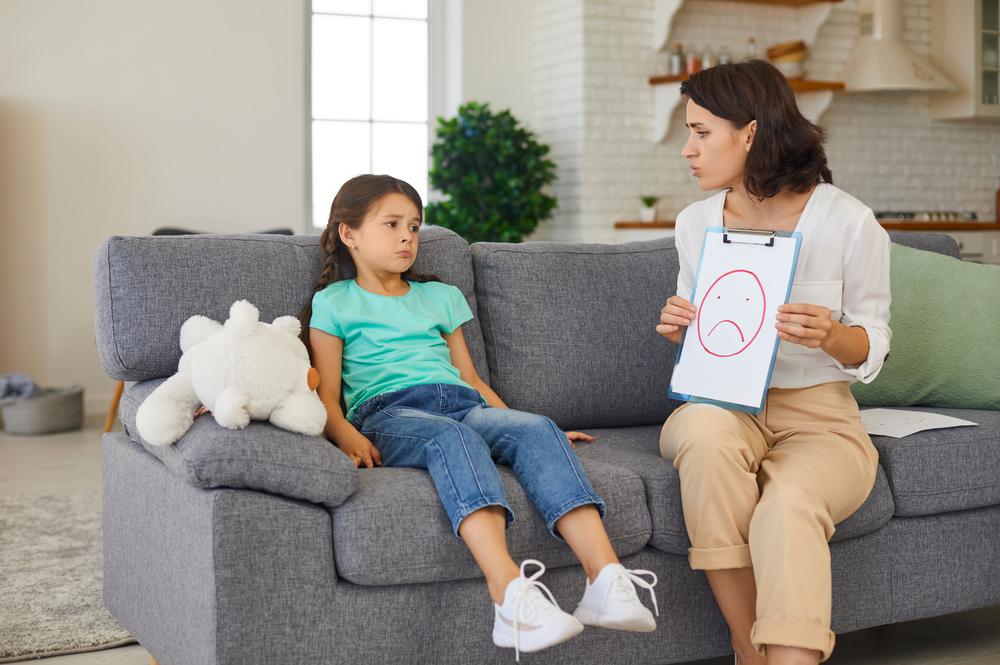Listening skills Worksheets for 6-Year-Olds
6 filtered results
-
From - To
Enhance your child's listening abilities with our meticulously designed Listening Skills Worksheets for 6-Year-Olds. These printable worksheets from Kids Academy promote active listening through engaging activities. Our worksheets feature fun exercises like following directions, comprehending stories, and sound discrimination to help kids sharpen their auditory skills while enjoying the learning process. Perfect for kindergarten and first-grade students, these resources are ideal for classroom use or at-home practice. Integrate these worksheets into your child’s daily routine to foster attentive listening and comprehension, laying a strong foundation for future academic success. Start their learning journey today!


Baa Baa Black Sheep Printable
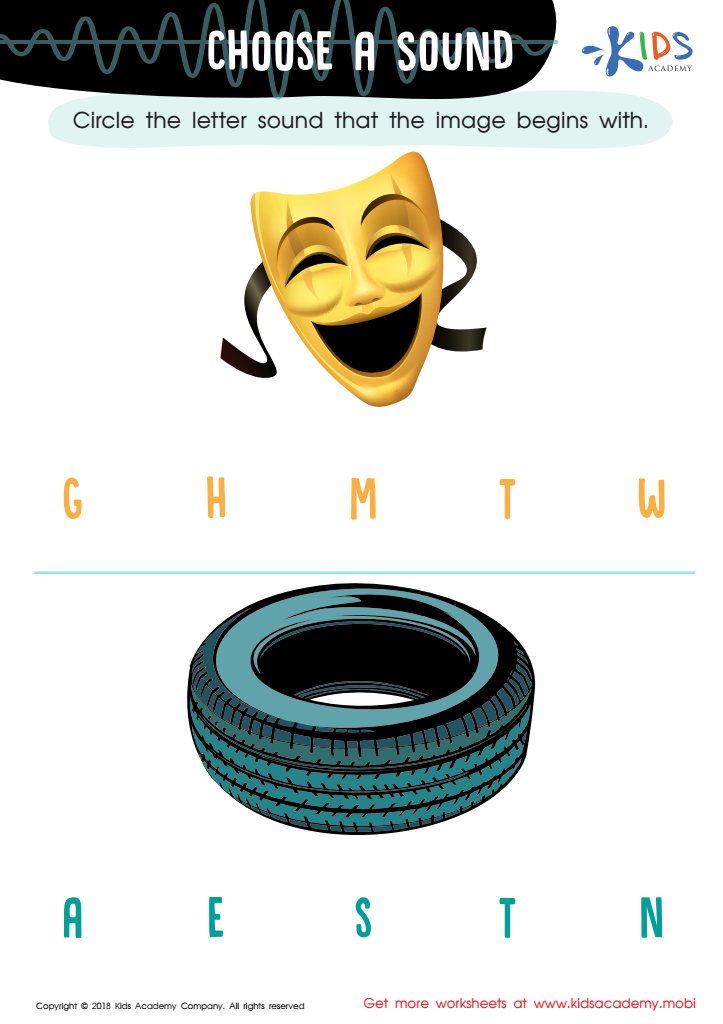

Choose a Sound Worksheet
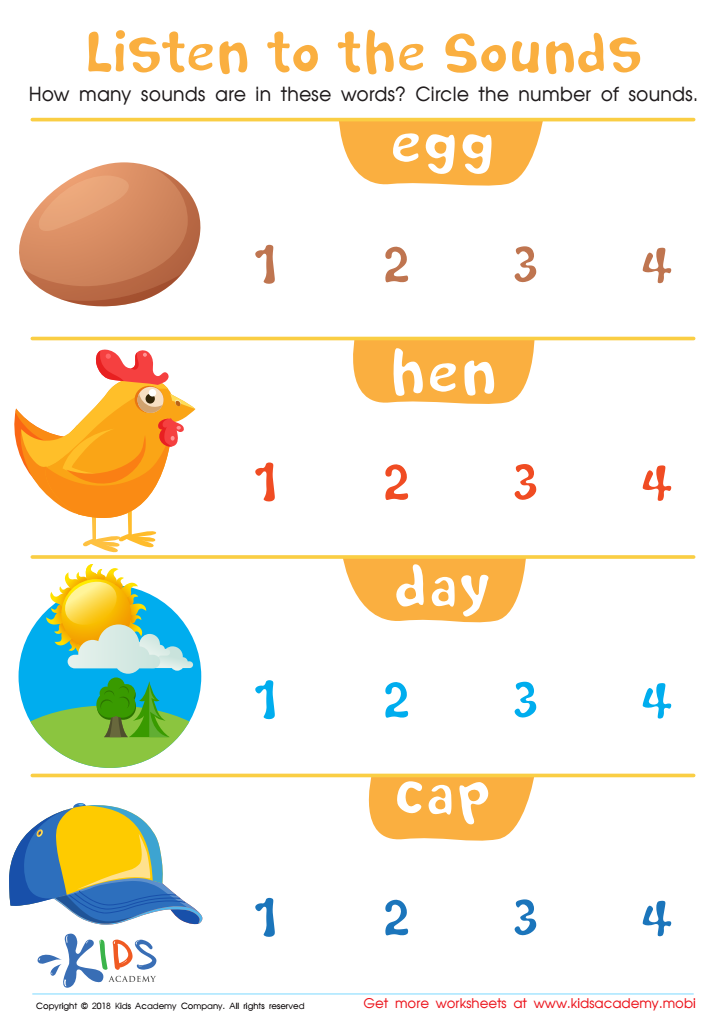

Listen to the Sounds Worksheet
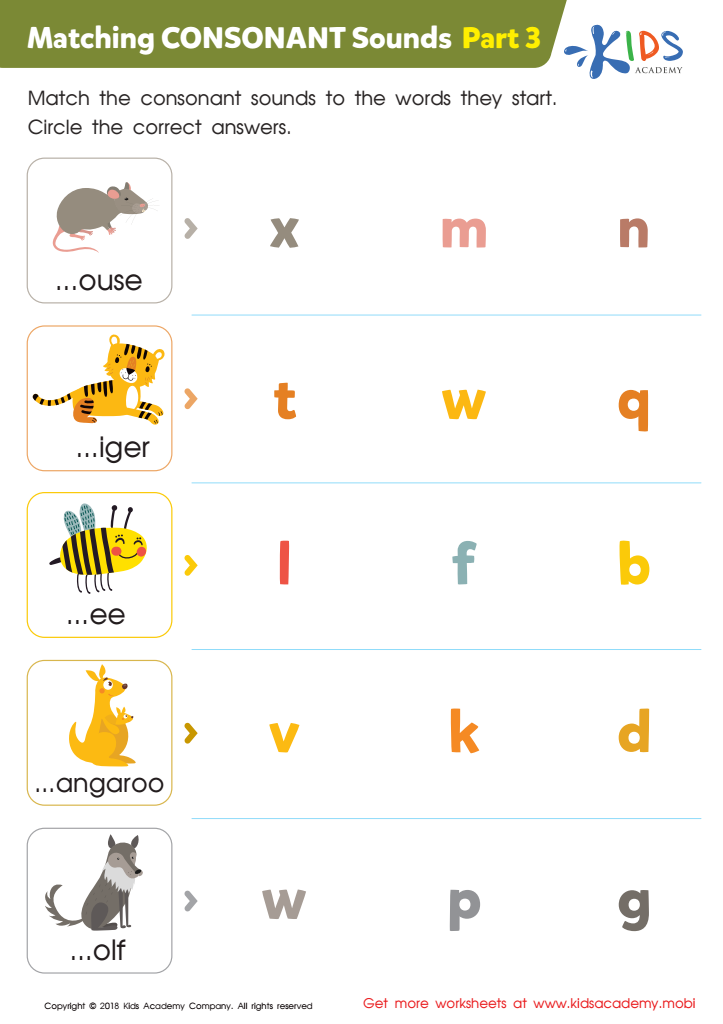

Matching Consonant Sounds: Part 3 Worksheet
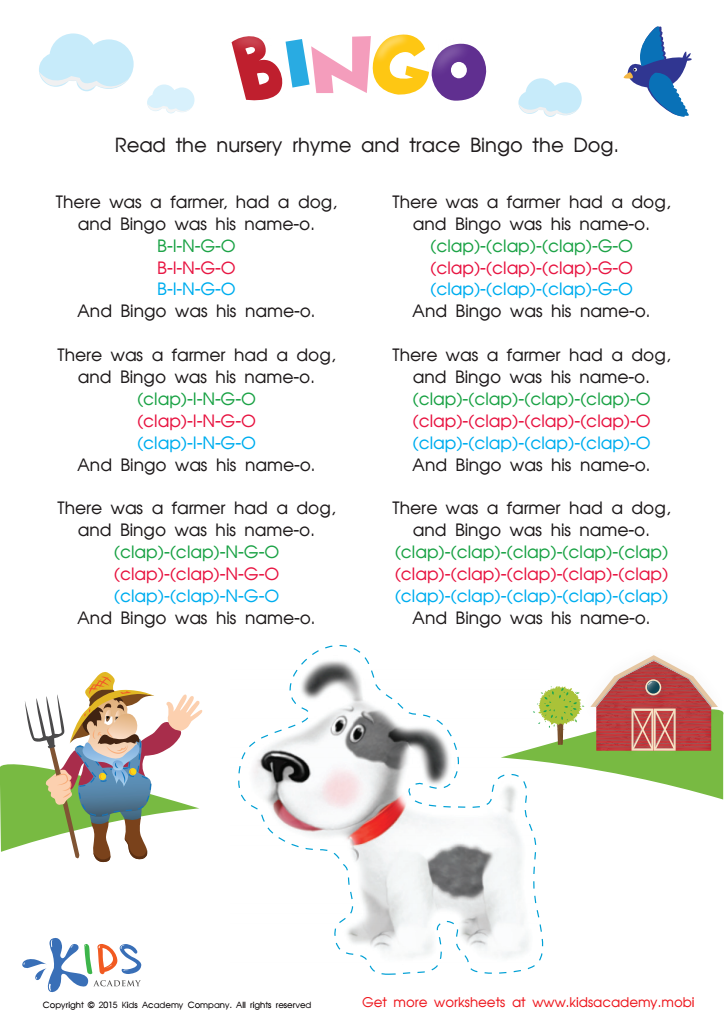

Nursery Rhymes: The Bingo Song Worksheet
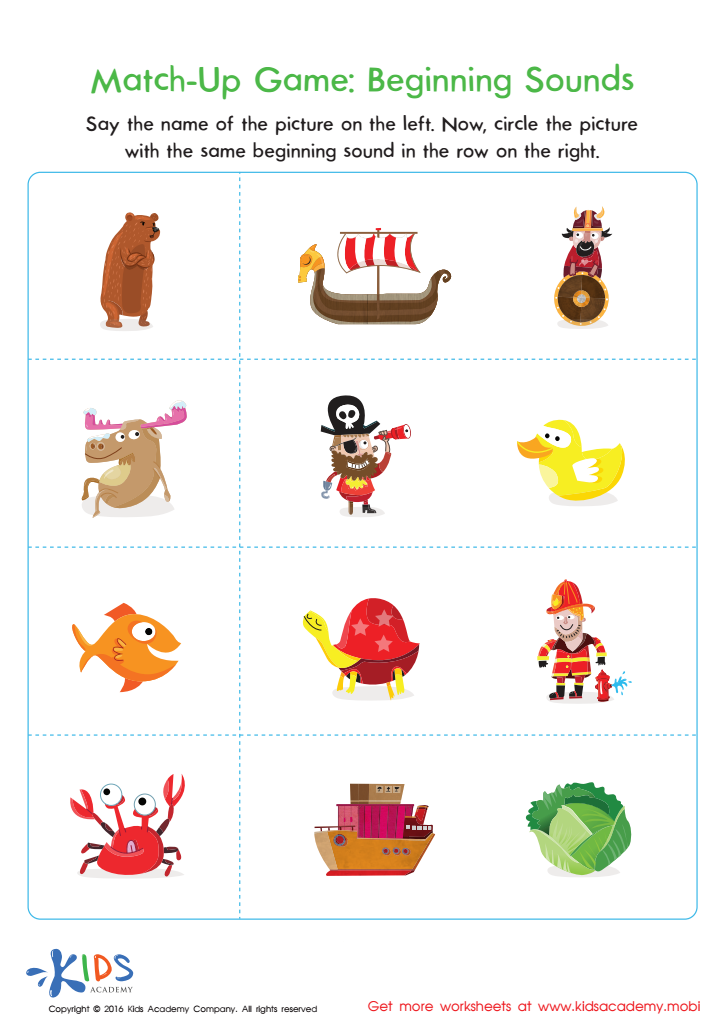

Match–Up Game: Beginning Sounds Worksheet
Listening skills are crucial for 6-year-olds as they lay the foundation for effective communication, learning, and social interaction. At this developmental stage, children begin to engage more deeply with their environment, and strong listening skills are vital for understanding instructions, absorbing new information, and interacting appropriately with peers and adults.
For parents and teachers, fostering good listening skills is essential because it directly impacts a child's academic success. Listening well enables children to follow directions accurately and comprehend what is being taught, which supports the acquisition of literacy and numeracy skills. Furthermore, active listening enhances critical thinking and problem-solving abilities, as children learn to process and respond thoughtfully to questions and scenarios.
Socially, good listening skills help children build and maintain healthy relationships. By listening to others, they learn empathy, respect for different perspectives, and the importance of turn-taking in conversations. This is particularly important in classroom settings, where cooperative learning and group activities are common.
Moreover, listening is closely linked to language development. It enhances vocabulary expansion, sentence structure understanding, and overall language proficiency. Parents and teachers who prioritize and cultivate listening skills in 6-year-olds equip them with the tools necessary for lifelong learning, effective communication, and social wellbeing.

 Assign to My Students
Assign to My Students




